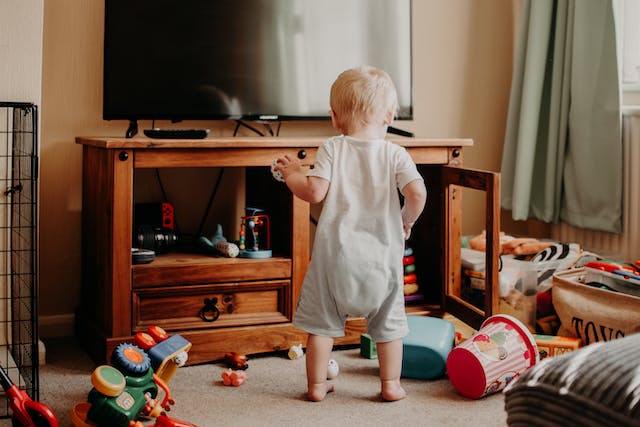You are smarter than your child…Really!

In order to be the best teacher and guide that your child needs, you must be able to handle anything your child throws at you — metaphorically, that is. You don’t have to know everything, and you don’t have to be perfect. You only need to use what you already know and remember. Experience is on your side.
Problem #1 is: each stage in your child’s evolving development brings new surprises and uncertainties that create doubt and confusion to you as a parent. What worked so well yesterday may not work today, because your child grew—cognitively, emotionally, socially, or physically. What worked so well with one child is like speaking a foreign language to another child.
And, problem #2 is: you are never smarter than your child “in the moment” – in that moment when you need to get out the door, in that moment when you had a horrible day at work and everyone is hungry, in that moment when your child is being completely irrational and off-the-walls. Your child, at least after 18 months (when “no” and “mine” and opposition is the usual way to becoming a separate person), knows how to push your buttons. It’s part of social-emotional learning and essential to healthy development. Your child also has all the time in the world to dawdle, to stall, to create chaos. In the moment, it’s just too easy to react out of frustration, desperation and anger.
Here is how to be smarter than your child:
1. Be ready for real moments. The easily-distracted child needs redirection and focus. The 0-60 intense child needs time and space to react, fall apart, and find a way to calm. It isn’t realistic to run another errand afterschool pick-up when both parent and child are tired, hungry, overwhelmed and very close to the edge. Be ready for stress and challenges, for emotional meltdowns and crazy-making behavior. Sometimes, you just have to ride through the storms and pick up the pieces after.
2. Choose your behavior in advance. Make a thoughtful plan and stick with it – don’t push yourself and/or your child when you’re overwhelmed or in a conflict. If there’s a challenging time of day (e.g. mealtime, bathtime, bedtime), restructure that time of day to minimize problems and teach new skills and habits. Change the situation rather than trying to change your child.
3. Give time for learning. Be a role model for learning and problem solving. Show your child that some struggles take time to change. Some habits take longer to learn, whether it’s mommy yelling or a toddler jumping off the sofa.
Remember, it isn’t you against your child. It isn’t your child driving you crazy “on purpose”, though it definitely feels that way. You are on the same side and your child needs you more than ever in the volatile moments. Your child needs the safety and security of a grown-up who’s smart and trustworthy.
Nothing’s perfect, though, and there will be out-of-control times. Parenthood will drive you bonkers. When you come face to face with your fallible and fragile human side, you will need adult support. Turn to your own parents, your spouse, or your friends for support, respite, or a fresh perspective. Laugh, scream, or bang your head against a soft wall. Just try to be a little mature about it—choose how and when you fall apart. And when you are completely lost chasing your child into uncharted developmental territory, you will always have the capacity to know more than your child.





Follow Us
Join the conversion. Make sure to follow us on our social platforms for the latest content and FamilyTime news.